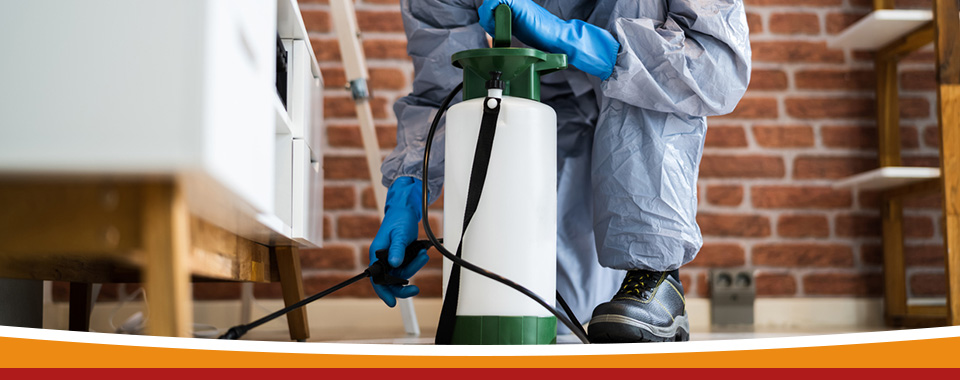Exterminator DC: Your Solution for Pest-Free Residing In Washington DC!
Exterminator DC: Your Solution for Pest-Free Residing In Washington DC!
Blog Article
Professional Pest Control Techniques for Long-Term Outcomes
In the realm of insect control, accomplishing continual efficiency and long-term outcomes needs a thorough strategy that goes beyond mere extermination. Professional bug control strategies encapsulate a thorough strategy that begins with a thorough assessment and analysis, followed by specific insect identification to comprehend their behavior patterns. The application of Integrated Pest Administration (IPM) concepts, coupled with eco-conscious treatments, creates the cornerstone of sustainable pest eradication. The true test exists in the recurring tracking and maintenance of the treated areas, making certain a pest-free atmosphere for the foreseeable future. By delving into the intricacies of these strategies, a deeper understanding of expert bug control methods for sustaining outcomes arises.
Examination and Assessment
Upon entering a residential or commercial property for pest control services, the initial action is a detailed examination and evaluation to determine the extent of the problem and establish the most reliable therapy plan. Professional parasite control service technicians are trained to thoroughly examine the facilities, seeking indications of insect activity such as droppings, gnaw marks, nests, or any architectural damage. They will certainly likewise analyze the conditions that may be drawing in insects, such as food sources, water leakages, or entry factors.

Parasite Identification and Habits

In addition, comprehending the actions of the identified bug is crucial to applying effective control measures. Understanding where insects nest, what they feed on, and their activity patterns can assist pest control professionals design methods to eliminate them efficiently.
Integrated Parasite Management (IPM)
Integrated Bug Management (IPM) approaches combine multiple techniques to control and prevent parasite infestations in a lasting and ecologically friendly fashion. pest control. By integrating approaches such as biological control, habitat control, adjustment of social techniques, and using immune ranges, IPM aims to reduce using chemical pesticides
One of the vital principles of IPM is the focus on avoidance. This aggressive strategy involves tracking bug populations regularly to spot any possible problems before they escalate. By determining bug issues at an early stage, pest control procedures can be carried out quickly and properly.
Additionally, IPM advertises using non-toxic pest control methods whenever possible. This can consist of utilizing all-natural killers of the bugs, presenting useful pests, or utilizing pheromones to interfere with breeding patterns. By minimizing reliance on chemical pesticides, IPM not only protects the setting yet also assists keep a balance in the environment.
Environmentally-Friendly Treatments
Carrying out eco-conscious methods in bug control treatments can successfully deal with infestations while focusing on environmental sustainability. Environmentally-friendly treatments focus on decreasing pest protection services the influence of parasite control approaches on communities, non-target organisms, and human wellness.
An additional key facet of environmentally-friendly treatments is the use of natural and naturally degradable items that damage down quickly without leaving hazardous residues in the environment. Herb insecticides derived from plants like chrysanthemums or neem use effective parasite control while positioning marginal threat to non-target varieties. In addition, utilizing techniques like heat therapies or pheromone catches can target specific insects with precision, lowering the general ecological impact of parasite control techniques.
Continuous Monitoring and Upkeep
Normal assessments by qualified professionals are required to recognize any indicators of insect activity, examine the performance of previous therapies, and make changes to the bug control plan as needed. By monitoring bug populaces over time, parasite control specialists can track fads, prepare for possible issues, and carry out precautionary actions to minimize the risk of future infestations.
Along with surveillance, upkeep methods are important for long-term pest control success. This includes applying proper hygiene measures to get rid of potential food and water resources for parasites, sealing access factors to avoid pests from getting important source in the premises, and attending to any structural issues that could assist in pest infestations (bed bug heat treatment). try this out By including continuous monitoring and maintenance into an integrated pest administration method, organizations can make sure a pest-free setting and guard their building against costly damage and health dangers
Final Thought
Finally, using expert parasite control strategies such as complete evaluation and analysis, precise pest recognition and understanding of their habits, integrated parasite management strategies, environmentally-friendly therapies, and ongoing surveillance and maintenance are vital for accomplishing long-lasting results in insect control. By carrying out these techniques, individuals can efficiently manage insect invasions and keep a pest-free atmosphere in a lasting manner.
Report this page